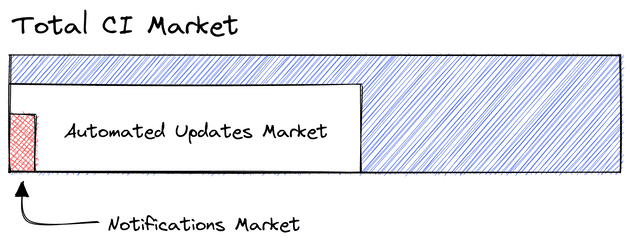Slack dinged on the morning of March 11. It was a reasonable question, aligned with my values of building quality features and talking to users.
Are you planning any follow-up research on the clarity and effectiveness of the notifications?
We started sending notifications for infrastructure failures a few weeks earlier. They brought visibility to infrequent-but-serious problems with automated updates. Our early adopters were generous with feedback, but surely the content could still be improved.
I said no.
Deciding against work that aligns with your values is difficult, but blindly saying yes is worse. Being reflexive opens the door to taking on unknown work haphazardly, delaying prioritized work. Decisions like this should be thoughtful.
Super Thinking has this advice:
When someone presents a new idea or decision to you, take a step back and consider other ways in which it could be framed.
Inverting the question is an effective way to re-frame. Flipping this question around, I asked myself:
If we committed to research something, would we choose notifications?
I thought it was relevant to look at our userbase for help in answering this.
Given the chance to research anything, I would not choose to use our limited time on a subject relevant to 2% of users.
The next question was: what else could we be doing?
The backlog had items that would affect all CI users and all automated updates users. We agreed to choose some work with broader impact.
